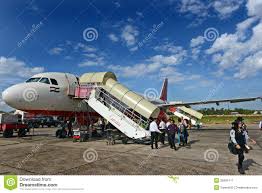The Pace of Immigration
Last month I turned seventy-five and (among other things), realized that the New Zealand I grew up in bears only some relationship to the Aotearoa I now try to understand. Not only that, but the society I now live in, seems to be changing at an increasing rate.
Apart from the ever-advancing technologies, many of the changes seem to stem from the increasing number of people arriving on our shores, from all round the world. Not that this is anything new. I heard a story once, many years ago, about Waru sitting in his waka in Waitemata harbour watching the latest passenger ship coming in from England, wondering why the Pakeha didn’t just stay where they came from. Some things don’t change as much as we might think.
Over-population, while causing considerable stress in many other parts of the world, is not regarded by many as being a major problem for us, here, yet. Nearing five million people isn’t a big deal given the size of our country, relative to other places in the world. The pace of growth, though, is causing issues which could get worse if we don’t recognize them, and do something about it.
Immigration requires more infrastructure growth and increased housing but at a speed that can be handled. Too many people arriving too quickly, results in not enough housing to go around. Not only does housing need to be upped, but social infrastructure such as water, sewerage, waste disposal etc. needs also to keep pace. Current media headlines suggests this is not happening in a number of cities. Homelessness is probably the most obvious result of an overly fast immigration rate, but not the only one.
People from other countries have differing value sets and strongly held belief systems, often leading to very different social expectations. This phenomenon also needs to be recognized and accommodated peacefully as immigration increases. Our country’s social systems with its associated beliefs and values, built up over the last two centuries and cherished by existing New Zealanders, are likely to face testing times. If immigration happens too quickly, troubles will most likely spring up.
It is difficult to address the full complexity of these issues if there is a lack of systems-wide understanding by the general community and political parties, of the total picture. “We need more trained workers: we need more houses: we need faster economic growth: etc, etc.” All may be valid to a point, but each argument on its own doesn’t always stack up when the total picture of a healthy national community is what we are really striving for. Concentrating on one issue on its own, without taking into account the total picture, is a recipe for failure. Families having to sleep in cars is today’s sign of this kind of failure.
Obviously a common set of values and beliefs isn’t going to happen overnight, if ever. Even getting a modicum of acceptance takes time; centuries in some cases. Anyone with more than a passing knowledge of the social history of the UK, for example, knows it took thousands of years and many wars and substantial changes in social structures to get where they are today. Taking things faster than can be accommodated, is a recipe for a very unhealthy society. (Some would say that is happening again now in the UK, with Brexit, but that’s another story).
In our own country today, for example, much is still heard of the need for bi-culturalism. With high rates of immigration from many countries, we are now facing the question of what New Zealand as a multi-cultural society might look like.
As the saying goes, “we live in an ever-changing world”. Regulating the pace of immigration to a level that keeps a changing, but relatively integrated society healthy, is a must. Our challenge is to change without trying to go too fast; finding the right balance while aiming for the development of a socially healthy community. That’s what we should be aiming for.

Leave a Reply